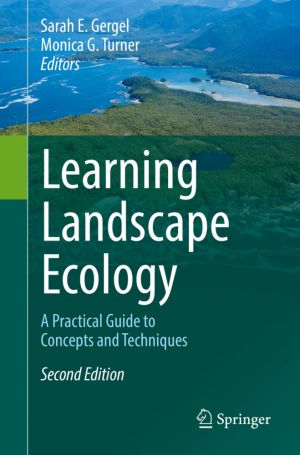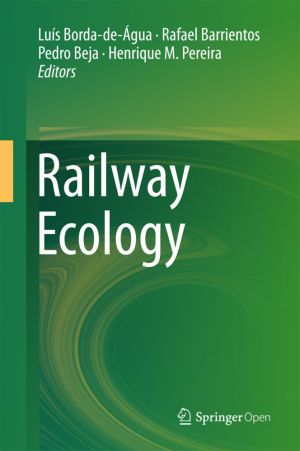Railway Ecology
by Luís Borda-de-Água, Rafael Barrientos, Pedro Beja, Henrique Miguel Pereira
DescriptionDetailsHashtagsReport an issue 






Book Description
This book provides a unique overview of the impacts of railways on biodiversity, integrating the existing knowledge on the ecological effects of railways on wildlife, identifying major knowledge gaps and research directions and presenting the emerging field of railway ecology. The book is divided into two major parts: Part one offers a general review of the major conceptual and theoretical principles of railway ecology. The chapters consider the impacts of railways on wildlife populations and concentrate on four major topics: mortality, barrier effects, species invasions and disturbances (ranging from noise to chemical pollution). Part two focuses on a number of case studies from Europe, Asia and North America written by an international group of experts.This open book is licensed under a Creative Commons License (CC BY). You can download Railway Ecology ebook for free in PDF format (8.4 MB).
Book Details
Title
Railway Ecology
Publisher
Springer
Published
2017
Pages
336
Edition
1
Language
English
ISBN13
9783319574950
ISBN10
3319574957
ISBN13 Digital
9783319574967
ISBN10 Digital
3319574965
PDF Size
8.4 MB
License

Related Books

This title meets a great demand for training in spatial analysis tools accessible to a wide audience. Landscape ecology continues to grow as an exciting discipline with much to offer for solving pressing and emerging problems in environmental science. Much of the strength of landscape ecology lies in its ability to address challenges over large are...

Some European lands have been progressively alleviated of human pressures, particularly traditional agriculture in remote areas. This book proposes that this land abandonment can be seen as an opportunity to restore natural ecosystems via rewilding. We define rewilding as the passive management of ecological successions having in mind the long-term...

The first book of its kind, this work discusses the global extent of ranaviruses, principles of ranavirus ecology and evolution. The research included provides guidance on designing ranavirus surveillance studies to determine risk. Ranaviruses are are double-stranded DNA viruses that cause hemorrhagic disease in amphibians, reptiles, and fish. Rana...

How can we design more sustainable industrial and urban systems that reduce environmental impacts while supporting a high quality of life for everyone? What progress has been made towards reducing resource use and waste, and what are the prospects for more resilient material-efficient economies? What are the environmental and social impacts of glob...

This book aims to provide case studies and a general view of the main processes involved in the ecosystem shifts occurring in the high mountains, and to analyse the implications for nature conservation. Although case studies from the Pyrenees are preponderant, conclusions are aimed at any mountain range surrounded by highly populated lowland areas....

This book provides an unprecedented synthesis of the current status of scientific and management knowledge regarding global rangelands and the major challenges that confront them. It has been organized around three major themes. The first summarizes the conceptual advances that have occurred in the rangeland profession. The second addresses t...

